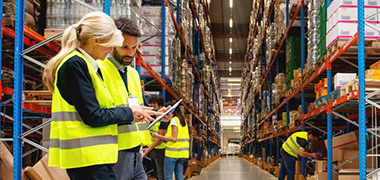
This role has a low level of AI exposure. Core skills such as adaptability, social intelligence, and complex physical tasks remain beyond the capabilities of current AI.
Explore all careersA Metal Worker fabricates parts from metals like steel and aluminium, cutting, shaping, assembling, and installing them according to specifications.
Get qualified to work as a Metal Worker with a course recognised across Australia. Speak to a training provider to learn more.

In Australia, a full time Metal Worker generally earns $1,530 per week ($79,560 annual salary) before tax. This is a median figure for full-time employees and should be considered a guide only. As you gain more experience you can expect a potentially higher salary than people who are new to the industry.
 Courses.com.au Team
Courses.com.au Team
The number of people working in this industry has fallen in recent years. There are currently 5,500 people employed as a Metal Worker in Australia compared to 8,400 five years ago. Metal Workers may find work across all regions of Australia.
Source: Australian Government Labour Market Insights
 Courses.com.au Team
Courses.com.au Team
To become a Metal Worker, consider enrolling in a Certificate III in Engineering – Fabrication Trade where you’ll learn a range of mechanical cutting, metal fabrication and welding processes. You could also consider a Certificate III in Engineering – Mechanical Trade or a Certificate IV in Engineering (Foundry Technology).
 Courses.com.au Team
Courses.com.au Team
Browse occupations related to Metal Worker



The demand for skilled Metal Workers in the Australian Capital Territory is on the rise, making now an excellent time to consider enrolling in Metal Worker courses in Australian Capital Territory. These courses offer comprehensive training in essential skills such as fabrication, welding, and mechanical engineering, preparing students for a fulfilling career in this vital sector. With three distinct courses available, you can choose the pathway that best suits your aspirations and experience level.
For those just starting out, consider the Certificate III in Engineering - Fabrication Trade MEM31922 or the Certificate III in Engineering - Mechanical Trade MEM30219. These beginner courses cater to individuals with no prior experience and equip students with practical skills that are immediately applicable in the workplace. Additionally, the Certificate III in Engineering - Fabrication Trade (Apprenticeship) MEM31922 combines hands-on learning with on-the-job training, offering a pathway to become a qualified professional.
As you embark on your journey to become a Metal Worker, it's also worthwhile to explore a variety of related job roles within the industry. Positions such as Apprentice Engineer, Engineering Tradesperson, and Blacksmith all require a solid grounding in metalworking skills. Alternatively, roles like Boilermaker and Welder offer exciting opportunities for those looking to specialise in specific areas of metal fabrication.
Given the geographical proximity to industry hubs and the importance of supporting local businesses, studying for your metalworking qualification in the Australian Capital Territory provides a range of unique advantages. Students have access to a variety of workshops and industry connections which can enhance their learning experience and facilitate job placements upon completion of their training. Roles like TIG Welder and Welding Instructor are increasingly sought after, highlighting the job security that comes with being qualified in this field.
Ultimately, choosing to pursue Metal Worker courses in Australian Capital Territory opens the door to a variety of rewarding career paths. With the foundation provided by these courses, aspiring Metal Workers can look forward to an exciting future in engineering and fabrication. Whether your goal is to become a Sheet Metal Worker or a Fabricator, there has never been a better time to start your journey in this dynamic industry.